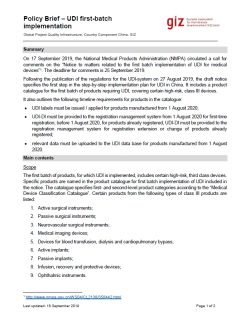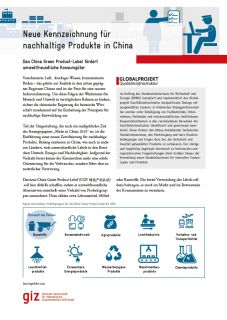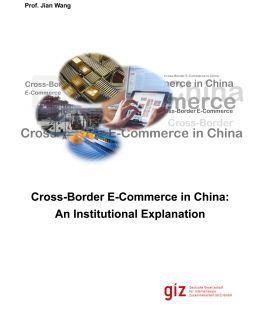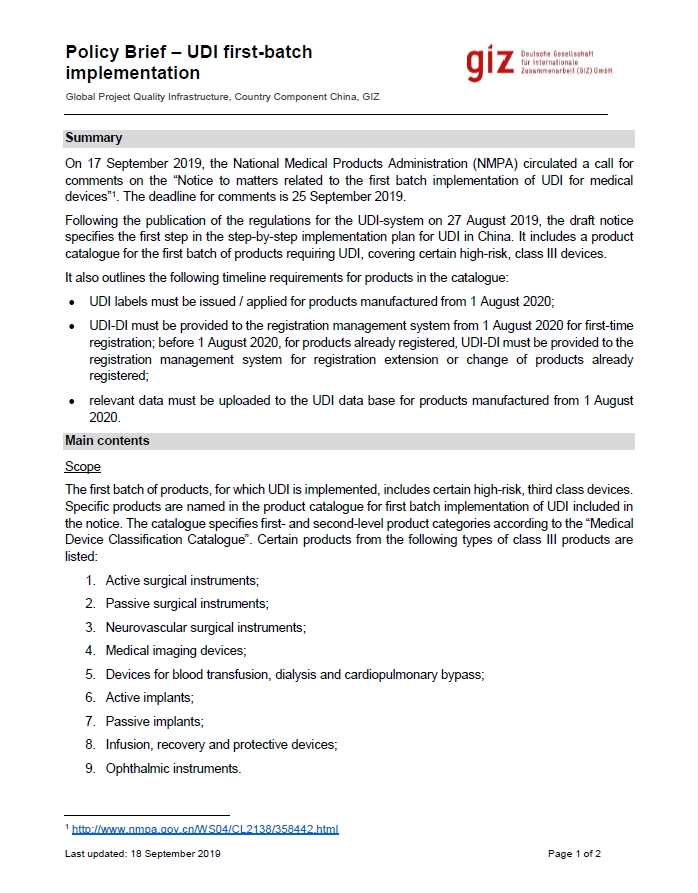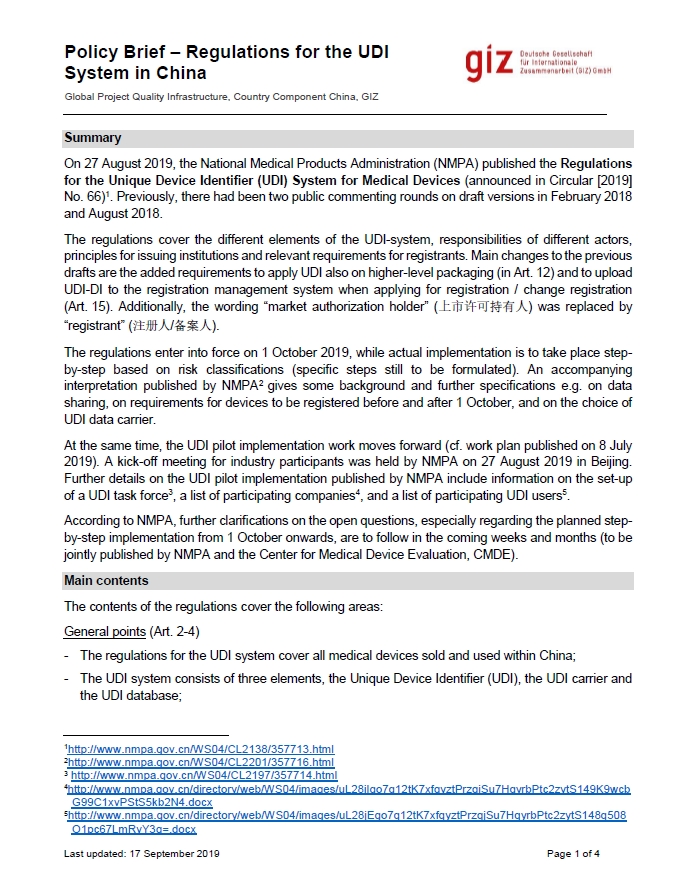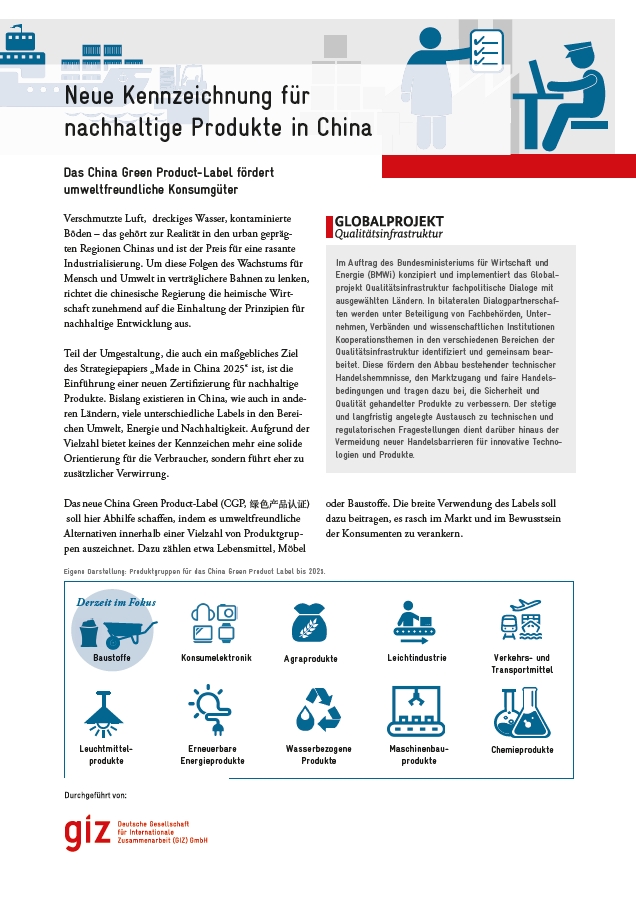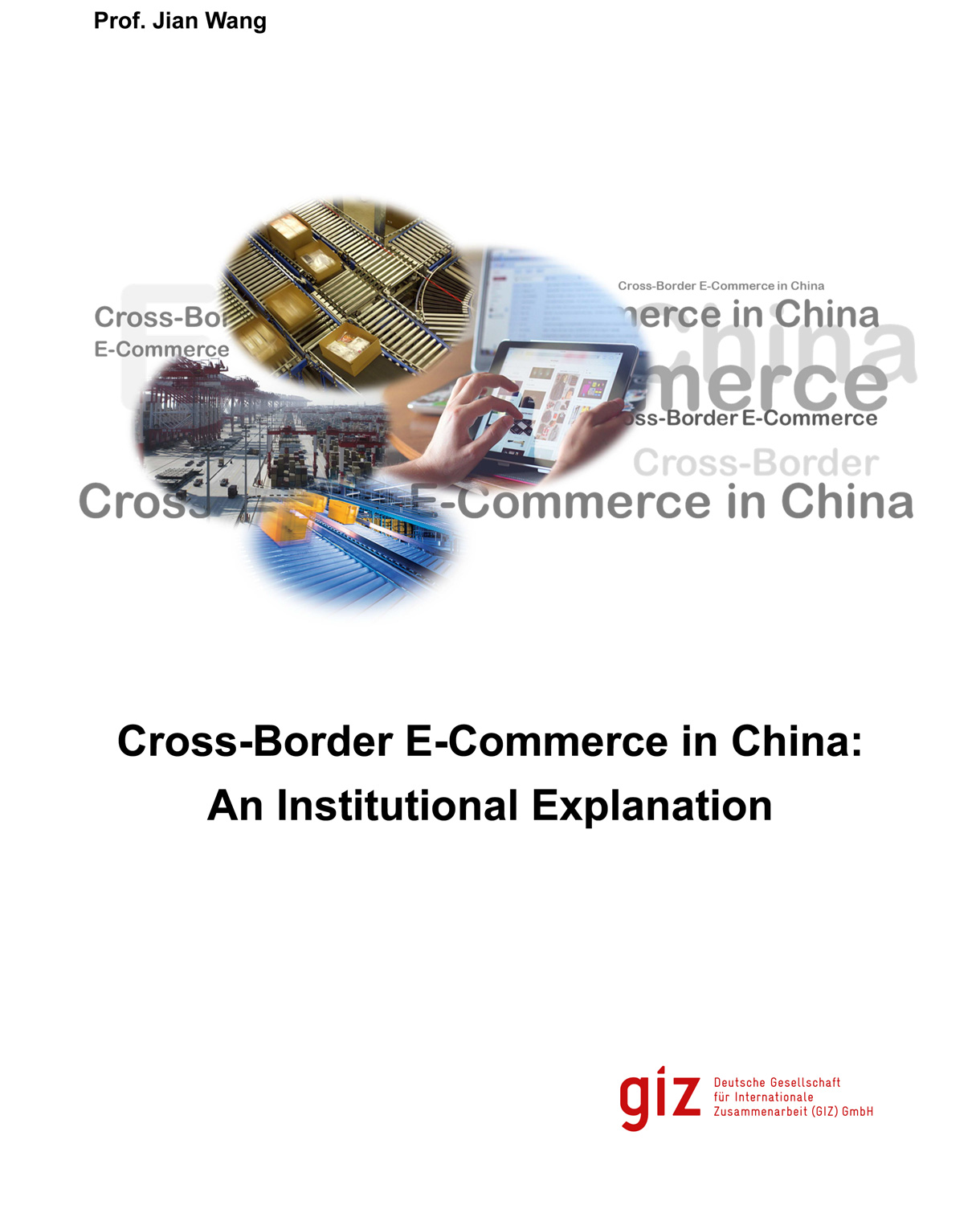China
Latest publications
News
Sino-German Working Group on Product Safety conducts workshops on rapid alert systems and e-commerce
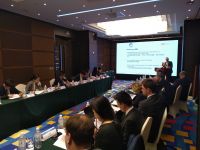
In conjuncture with the Annual Meeting of the Sino-German Working Group on Product Safety, the German Federal Ministry for Economic Affairs and Energy (BMWi) and the Chinese State Administration for Market Regulation (SAMR) conducted two technical workshops. They served as a platform to address current challenges in greater detail and discuss possible solutions with participants from ministries and relevant stakeholders. The workshops took place in Beijing, P.R. China, on 4th of November.
Sino-German Cooperation on Risk Management and Recall Processes in the Automotive Industry
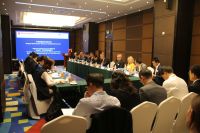
The Sino-German Sub-Working Group Automotive Safety (Project Line 2) on Risk Management and Recall Processes held a workshop with regulators from China’s State Administration of Market Regulations (SAMR) on 4 November 2019. Building on past regular technical exchanges and discussions, the workshop helped to advance ongoing topics and solidify shared interests between the German automotive industry and the Chinese regulatory authority.
Events
Contact
Jan-Patrick Schnell
Head of Country Component China
Sino-German Quality Infrastructure Project
Deutsche Gesellschaft für Internationale Zusammenarbeit (GIZ) GmbH
Tayuan Diplomatic Office Building
Room 1-13-1
No. 14, Liangmahe Nanlu, Chaoyang District
100600 Beijing, PR China
北京市朝阳区亮马河南路14号
塔园外交人员办公楼1-13-1
Phone: +86 10 85 32 47 58
Mail: china@gpqi.org

